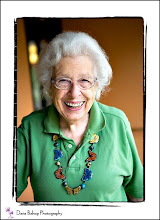SPEKING AND SPELING
Du u prefur fonetics?
Since I'm no fashion plate when it comes to clothes, I choose to write about another kind of style.Du u prefur fonetics?
My father used to tell this story:
There was once a college in the middle west that had a winning football team for the first time in many years. It was in contention for the the regional conference title. This had so pleased the alumni that there had been an unusual numbers of large grants and directed funds to the university. The president of the university was beside himself with joy. And if the Big Game was won on the coming Saturday, cinching the title, much more money could be expected.
The football coach also was delighted. He was making a real reputation for himself. Much of it was due to the brilliant player, Joth Anon, the most essential player in every game.
There was also in this university a young English instructor who didn’t follow the fortunes of the team, nor would he have changed his standards of grading even if he had. Joth Anon was enrolled in one of his classes. And Joth Anon was flunking. The instructor issued the usual warning. This warning meant that Joth Anon was barred from athletic teams until he made a passing grade in the class.
Joth came to his coach, almost in tears, and explained the situation.
His coach, almost in tears, went to the university president, and explained the situation. The president and the coach, almost in tears, went to the English instructor and explained the situation.
The instuctor didn’t seem to understand the gravity of the situation. “I had to flunk Joth; he has never turned in a single paper, nor has he taken any tests. I’m not sure that I even know who he is or whether he has ever attended the class.”
The president reminded him that he was soon up for tenure.
“Well,” the instructor compromised, “I’ll pass him if he turns in one perfect paper of, say, a thousand words. I would insist that the composition be done in my presence so that I know it is his own work.”
“One thousand words? Isn’t that excessive?”
“Five hundred?” the instructor ventured.
“One hundred?”
“Too much!”
Finally, in desperation, the instructor suggessted, “One twelve letter word, perfectly spelled?”
“Make it a six letter word, and you can’t really demand perfect spelling. How about one correct letter in it?”
The instructor agreed, and they called Joth to the office and explained what he would have to do to get a passing grade.
Feeling utterly defeated, the instructor said, “Spell ‘coffee’.”
Joth scratched his head thoughtfully for quite a while. Then he started. “K--A--W...” He thought a little longer; then his face brightened and he finished, “P-H-Y.”
More than one of my four children, those who were not brilliant at spelling, became early proponents of simplified English spelling. Now I’ll admit that when I am in a hurry to write an urgent message that I’ll sometimes use thru and tho, although (there’s another one I sometimes use--altho), but I also correct them if I am, say, sending out a manuscript. In general, though, I find myself an opponent of any tampering with the English language. Our heritage of words from different roots makes for a clarity of meaning that could be easily lost by simplification.
In other words, I believe in a wordw-r-i-g-h-t’s r-i-g-h-t to w-r-i-t-e about any strange r-i-t-e that catches her fancy. One of my sons solved the problem of spelling these same-sounding words by using w-r-i-g-h-t-e for any one of them, undoubtedly with the hope that by covering all bases he would please his teacher.
Now, it might be possible to discern the meaning of a phrase with this spelling--a wordrite’s rite to rite about any strange rite. Even so, I don’t know how the spelling simplifier would manage the a-n-g-e sound in s-t-r-a-n-ge, which is hardly a simple phonetic pronunciation.
There are many other words that would have ambiguous meanings if spelled phonetically--site and sight, for instance. “The Sierras are a wonderful s-i-t-e.” Does this mean that you should take your camera there or that it’s a good place to build your summer cabin? (The simplified spelling purist would probably write that as “thu Sieras ar a wundurful site”)
If one goes to the s-e-e, is he at the ocean or visiting the bishop?
“That second-hand store specializes in r-u-f-f clothing.” Does this mean rough canvas jeans for scrambling over rocks, or does it mean formal clothes with a ruff on the tuxedo shirt?
And what about those two words, error and errer which most of us, rightly or wrongly, pronounce alike? How does one distinguish the mistake from the person who makes the mistake?
And if foot is simplified to fut, would boot be distinguishable from but or butt?
Yes, I know that it’s hard for an elementary school student to master the tough lessons of spelling rough, cough, though, through, thought and bough.
I’ll still stick to my precise, multi-faceted, expressive English language.









26 comments:
You hit a raw nerve! I'm a great fan of simplified spelling! In fact, I had a book published on the subject at one point in my career! I used to teach my kindergarten children to write anything that came into their heads using 40 sounds. Once they felt happy doing that I introduced them to Proper Spelling (T.O.) It worked a treat. And, in fact, their spelling ages were high at the end of the year. Don't get me started! I get goose-bumps when I think about it!
As a foreigner (and one who has her own horrendous-to-spell-correctly language) I can feel for Josh (and kids everywhere who are suffering through spelling lessons) but I do actually like the challenge.
It is a great story.
I agree with you Granny Smith, there are attractions to simplified spelling but our system does actually make sense for the reasons you mention. I'm currently reading Steven Pinker's brilliant book The Language Instinct and in fact the section i read last night made exactly your point.
I cant begin to tell you how strongly I feel about spelling words correctly :) Totally agree with this post, Granny! You've touched on a subject that's very very close to my heart.
I agree - language and spelling is vital, even though I often get it wrong myself.
I'll place, as my excuse, the fact that I left school at 15 and haven't had any formal education since.
What you get is self-taught. But I try my best.
I constantly have to think twice about sight and site and also stumble over wonder and wander...perhaps because I do a lot of wondering whilst wandering! Anyway, I used to be good a spelling when I was younger but have more and more trouble as I get older. I don't know if this is down to reliance on spellcheckers or just lack of practice. But I always feel bad when I come to write a word on the whiteboard and can't remember how it's spelt. Not good to be an EFL teacher and not be able to spell!! Anyway, I never learnt phonetics as a kid. I guess I tend to think there's nothing for it but sitting down and remembering stuff. And, compared to the nightmare of trying to learn kanji characters in Japanese, English spelling is a treat!
Very interesting post today and reading it made me glad my 8th grade teacher made us memorize those special words that have only one real spelling.
Great coffee story by the way!
hugs
haha I loved that story!
As a foreign user of your language I have a tendency to respect it much more than native users, so I try to spell everything properly and notice, with a certain amount of horror, the amount of mistakes natives can give. But I must admit to falling for the trap of similar sounding words when I'm not paying full attention. ;)
This is an interesting one, made all the more interesting for me as my spelling of a word will often be different from yours by virtue of the fact I'm English! Colour / color, program / programme to quote two examples.
Like you I read several blogs which are written by folk to whom English is a second language, and I have to say that their use of our words often puts mine to shame
I do feel that today's kids are missing out on learning to spell correctly. Schools now think it doesn't matter how things are spelt as long as the free expression is there.
If children don't learn to spell while young, they will NEVER learn.
It is a constant irritant to me.
Jon just experienced his first highly confusing spelling challenge with not & knot. I'm not sure how he did on that spelling test!
Yes Granny! good post.I try to get it right, or wright or rite but not always as I like my aussie coloquialisms too. My puter's spell check annoys me though as it wants me to correct it so that it is American or Pommy based spelling.I think playing with words is style fun.
Being a user of "English" English, as opposed to American English, I often pause at an unfamiliar spelling in blogs, wondering whether it's just different usage, or a mis-spelling. Those same-sounding words appear so often that at times I wonder has it become the rule in the U.S. to use site for sight, troll for trawl, pour for pore...
I really enjoyed the coffee story! Thank you!
Spell it how it's said - ok which accent should I use to spell it?
this one made me smile. i myself is sometimes confused too with the spellings (and grammar!). im guilty of that haha.
i liked the title too
I hear ya! I'm still so disgusted that my seniors in high school can't spell their, there, and they're correctly!
Once I was our 7th grade spelling bee champ, but lately I find curious errors -- the wrong form of they're/their/there, for example; or, alittle or alot -- creeping into my prose. Scary.
Loved your story about the "student" athlete. Rings all too true.
Interesting story.
I type all of my articles and stories in Word. It might not catch everything, but it certainly helps.
By the way, I love the turtle necklace!
I was always great at definitions, but I still mess up there and their.
Great points and a delightfully creative take on the prompt.
Great to read you after my SS hiatus.
HUGS
Great post Granny, and I'm still laughing at the Joth Anon story!
believe it or not,, when i was taught to read we learned a form of phonetics called ITA.. ITA had its own alphabet and everything,, and somehow even tho i was never taught to read in any other form,, i figured it out as did the majority of the students that attended coe elementary school in north olmsted ohio,, one of the only school systems in the nation to employ this "state of the art" teaching tool in the 60's...
i do tend to agree though that spelling is a definite asset,, even if you don't spend as much time writing as we all seem to.....
excellent post... missed your posts.. i will have to drop in at SS more often!!!!!
The Joth Anon story made such an impression on me that when I got down to your error and errer question, “How does one distinguish the mistake from the person who makes the mistake?” I figured it would depend on how good you are at what you do :-D Oh, Lordy, but I did enjoy this. I’m a phonics proponent :-)
missalister
Great post... and as an English teacher myself I now see the effects of instant messaging and texting. The students are amazed when I remind them they have to write out words in the "real way". I love this story though. We deal with issues like this with athletes all the time.
well in third world countries where English is not a primary language you will find a lot of us making spelling errors, however I try and avoid taking shortcuts and slangs, as I hate to use the texting language
I love this post. I found it quite interesting and amusing. I have always been pretty good at spelling but I have to say the English language does pose quite a challenge lol.
I was often the last one standing for spelling bees in grade school. In high school, I took a shorthand class. My spelling suffered. Very enjoyable piece. BJ
Post a Comment